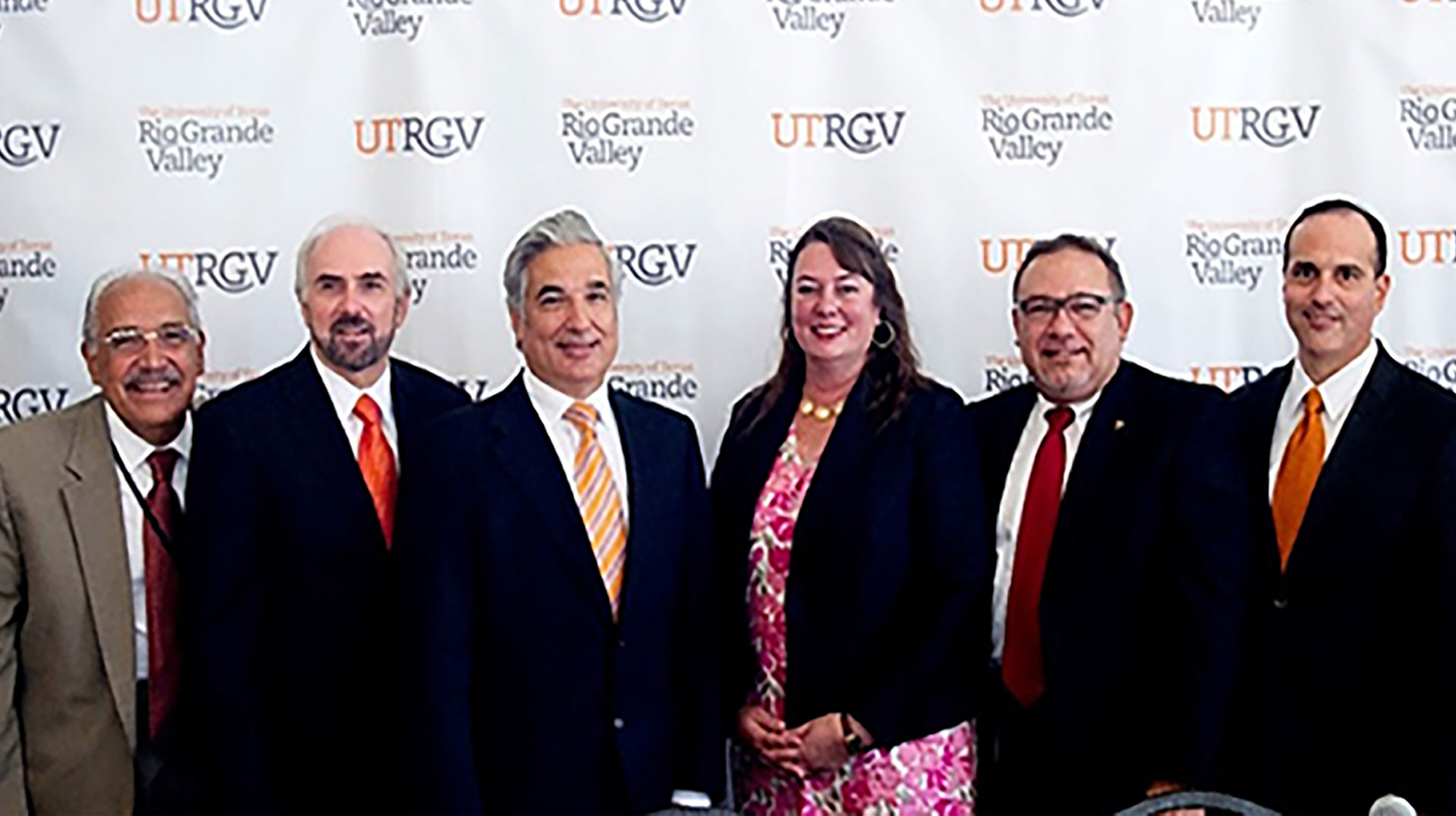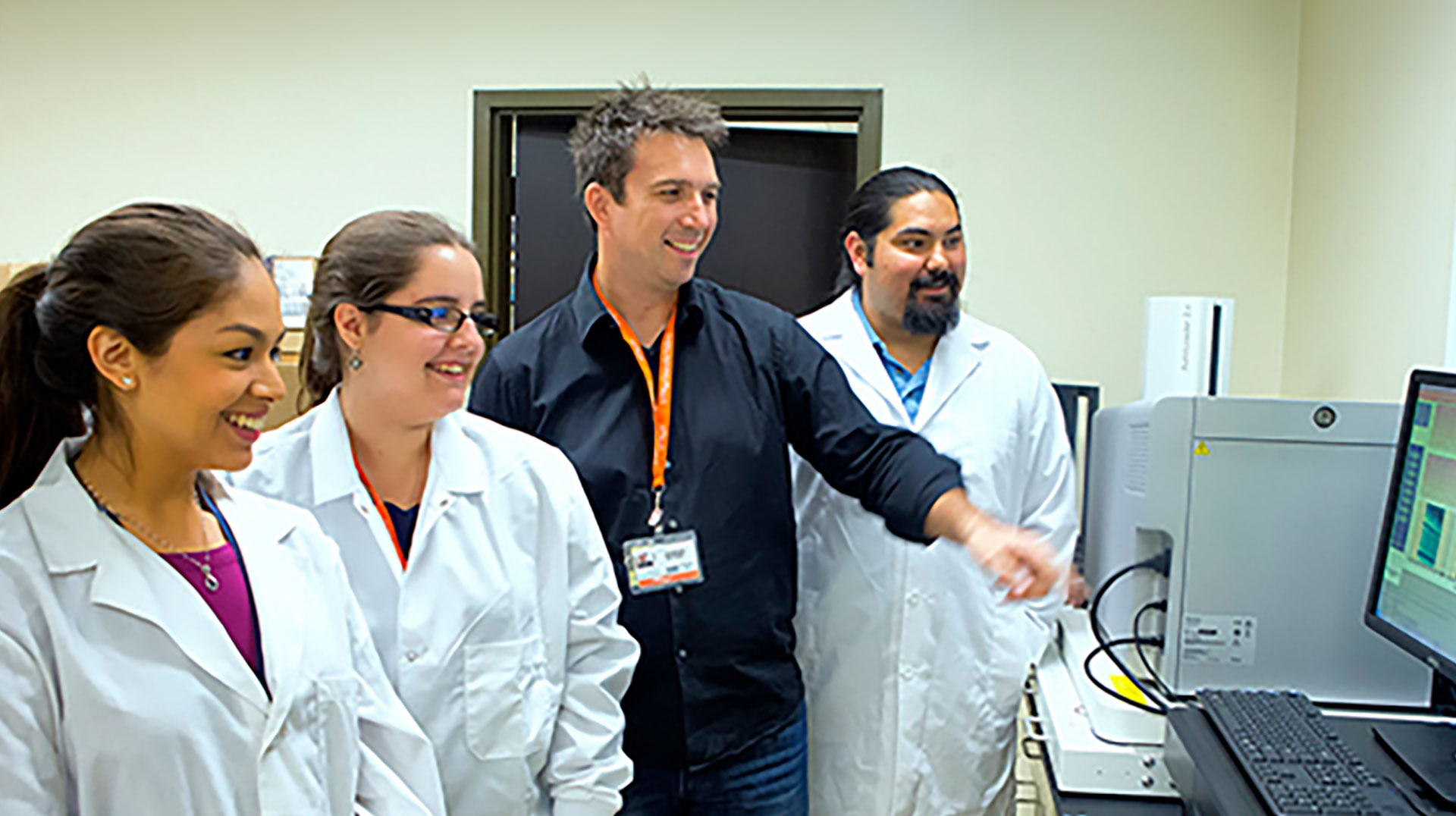Centers & Institutes
The South Texas Diabetes and Obesity Institute (STDOI)
The South Texas Diabetes and Obesity Institute was established on October 13, 2014 to be a focus for world-class biomedical research programs at the newly established UTRGV School of Medicine. With diverse research efforts in the areas of diabetes, obesity, heart disease, ocular health, psychiatric disease, osteoporosis, and infectious diseases of border health relevance such as Chagas disease and tuberculosis, the STDOI is working to address the most critical public health problems of the South Texas region. The mission of the South Texas Diabetes and Obesity Institute (STDOI) is to advance the health of South Texas and the world through cutting-edge research on diabetes, obesity, and related disorders. Using state-of-the-art resources and tools, the faculty and staff of the STDOI conduct research on a broad range of diseases and conditions related to diabetes and obesity. Building on a long history of work with minority populations and international research, STDOI scientists are committed to reducing health disparities in the Rio Grande Valley and to improving health across the globe.
View STDOI WebsiteSouth Texas Center of Excellence in Cancer Research
The South Texas Center of Excellence in Cancer Research (ST-CECR) was established in 2019 by UTRGV School of Medicine to address cancer-related health issues of Rio Grande Valley residents and establish a world-class facility for cancer research in the Valley. This institute is located in a state-of-the-art 80,000 square-foot Biomedical Research Building in McAllen, TX, and is equipped with core facilities and all other required infrastructure to support cancer research. This facility will house new technologies (Flow Cytometry, CyTOF, Image Stream Flow, Droplet Digital PCR, molecular and microPET/CT imaging) to support flow cytometric analyses in cell suspension and tissues, cell sorting, analysis of tumor immune components, microbiome and probiotics, cancer health disparity, antibody drug conjugates production, antibody nanoparticle therapies, antibody radionuclides and cancer immunotherapy research.
This institute will also provide access to molecular and imaging facility and will provide world-class infrastructure for cancer research training to junior scientists, student researchers, fellows, medical students and residents. The ST-CECR supports several federal and state-funded projects that involve studies related to tumor immune components, tumor microenvironment, nanomedicine, antibody therapies, animal cancer models and cancer imaging.
View ST-CECR WebsiteThe Institute for Neuroscience
The Vision for the UTRGV Institute of Neuroscience is to transform brain health in the Rio Grande Valley and Beyond and act as a catalyst for multidisciplinary and interdisciplinary excellence in research, education, clinical care, and community partnership to advance brain health.
Faculty at the Institute of Neuroscience include nationally and internationally renowned scientists and master clinicians from several departments at the UTRGV School of Medicine, including Departments of Neuroscience, Human Genetics, Neurology, Psychiatry, Psychology, Behavioral Health and Internal Medicine. Their expertise includes neurological and neuropsychiatric disorders, such as epilepsy, stroke, Alzheimer’s disease, major depression, bipolar disorder, early psychosis, addiction, multiple sclerosis, movement disorders and brain injuries among others. It also includes molecular geneticists, biomedical engineers, cognitive neuroscientists and expertise in neuroimaging and neuromodulations.
The Institute of Neuroscience houses an advanced neuroimaging suite that includes a 3T MRI and CT/PET scan machines as well as an infusion suite that can accommodate four patients simultaneously. ION houses a Clinical Research Unit with a dedicated clinical research laboratory and sample processing space, and a dedicated research pharmacy in addition to several medical and behavioral examination rooms, and small and medium-size meeting rooms. Additionally, ION also houses two neuromodulation laboratories dedicated to neuropsychiatric disorders and neurorehabilitation research, and an active community outreach program. ION also hosts the Department of Neurology and the Department of Neuroscience.
View ION WebsiteAlzheimer's Disease Resource Center for Minority Aging Research
The RGV AD-RCMAR was established in 2018 with funding from the National Institute on Aging (NIH, P30 AG059305). Because of its unique geographical location on the South Texas/Mexico border with a large Hispanic population, the focus of the AD-RCMAR is to reduce the impacts of Alzheimer’s disease and related brain disorders among Hispanics and other minority groups.
Our AD-RCMAR leads initiative efforts across UTRGV colleges and administrative departments to work together with patient advocacy groups, community-based organizations, private and public health care providers, state and federal agencies and other academic institutions to enhance the diversity of the workforce in minority aging research.
With a growing group of diverse research investigators studying the disproportionate health and economic burdens of Alzheimer’s disease in Hispanics, we hope to accelerate cutting-edge research programs, interventions, and health care services for Alzheimer’s prevention, along with the care and treatment of dementia tailored to Hispanics and health care providers in the RGV.
View AD-RCMAR Website

